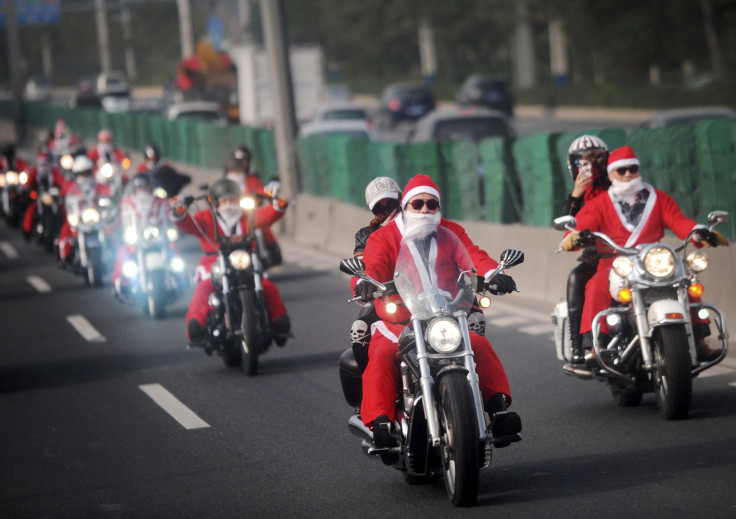China Christmas Ban: University, Town Ban Festive Celebrations Amid Concerns About Western Cultural Influence

Citizens, schools and even whole towns in China are attempting to curb Christmas celebrations amid a backlash against what is seen as the increasing influence of Western culture in the Communist-governed country.
Schools in the city of Wenzhou in China's Zhejiang province have been forbidden from holding any Christmas-related events, after authorities issued an official ban, according to the Global Times.
An education official in the city, which is home to one million Chinese Christians, told the paper: “We are not suppressing Western festivals, but we hope schools can be more balanced on this. Students can learn about Western festivals but they should not be over-enthusiastic about it."
In addition, Modern College of Northwest University, located in Xian, has banned Christmas celebrations, according to reports, choosing instead to have students attend screenings of what were described as propaganda films about Confucius on Christmas Eve.
According to a Reuters report, banners were draped outside the university with slogans that read: "Strive to be outstanding sons and daughters of China, oppose kitsch Western holidays," and "Resist the expansion of Western culture."
The agency reported that a blog linked to one of the school's official Communist Party committees wrote: "In recent years, more and more Chinese have started to attach importance to Western festivals.
"In their eyes, the West is more developed than China, and they think that their holidays are more elegant than ours, even that Western festivals are very fashionable and China's traditional festivals are old fashioned."
In another protest, college students in Hunan took to the streets to protest against Christmas celebrations.
College students in Hunan protest against Chinese people celebrating Christmas. http://t.co/6ITACwNpyx pic.twitter.com/3QalfUCX0N
- Chris Buckley 储百亮 (@ChuBailiang) December 25, 2014China's state-run Xinhua news agency, which is often seen as reflecting the official government line, noted that celebrating Christmas has become trendy among young Chinese, who see the festival as a time to shop, party and dine with friends, but that proponents of traditional Chinese culture have warned against cultural invasion.
China's Communist Party government is officially atheist, but there are a wide variety of religious traditions in the country, principally Taoism, Buddhism and Confucianism. The country is home, however, to an estimated 67 million Christians, according to 2010 figures from the Pew Research Center.
Some Chinese Christians say their faith has been singled out because authorities are concerned about its rapid growth in the country, and are seeking to curb its spread, according to a Japan Times report.
Ironically, despite the authorities' hostility to Christmas in China, the country manufactures 60 percent of the world's Christmas decorations, according to The Guardian.
© Copyright IBTimes 2025. All rights reserved.






















